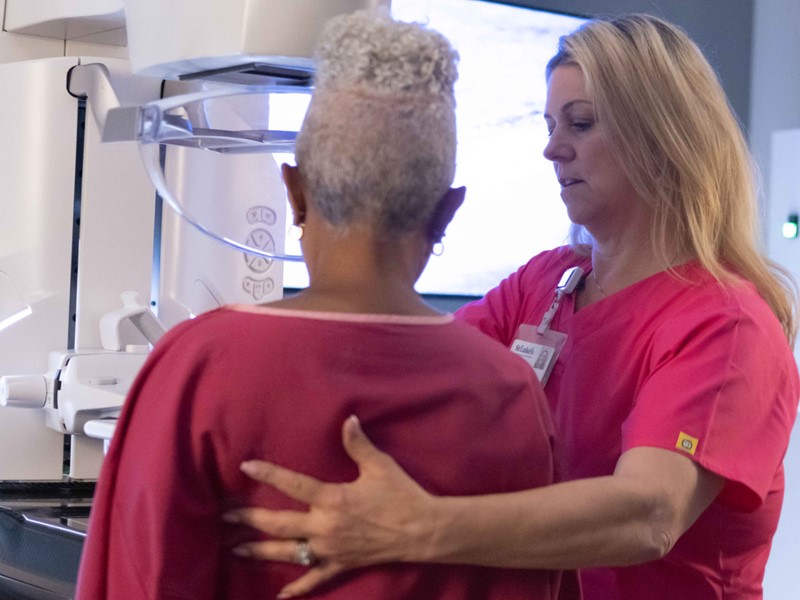Written by Catherine Estrampes - President & CEO for GE HealthCare USCAN
As a leader in breast health screening and diagnostic technology, GE HealthCare is committed to advancing women’s health and care that can empower personalized breast cancer care for all patients.
We know early detection and access to regular screening can save lives and are encouraged to see the United States Preventive Services Task Force’s (USPSTF) proposed updates to breast cancer screening guidelines lower the recommended age for initial screening to 40 in line with other guidelines developed by clinical experts. However, it is also important that women continue to have access to annual mammograms without cost sharing, as is current policy thanks to the Protecting Access to Lifesaving Screenings (PALS) Act, which will now need to be extended.
Women look to their providers to better understand their personal risk factors and what preventative care, like supplemental screening options, might be required.
While regular screening mammograms are critical for early detection, their effectiveness may be reduced in women with dense breast tissue* - which can make the detection of cancer more challenging.
We had hoped the USPSTF would acknowledge the importance of supplementary screening - such as traditional or automated breast ultrasound (ABUS), magnetic resonance imaging (MRI) and contrast enhanced mammography (CEM) – and its role in enabling clinicians to provide personalized breast care that helps them address the unique needs of their patients.
As the USPSTF works to finalize their recommendation, we hope they consider the growing evidence regarding the benefits of supplemental screening options for women with dense breasts.
To further illustrate the impact of having access to personalized breast care, I couldn’t help but think of Donna who recently shared her breast cancer journey with us.
For her, it all started when she received her annual mammogram reminder letter - where she noticed a note on the bottom in tiny print that indicated she had dense breasts and was eligible for a test called an automated breast ultrasound (ABUS).
She had always been good about getting her annual mammogram, so she called right away schedule an appointment and asked about ABUS as well. After a routine mammogram and an ABUS the same day, she got her results - a one-centimeter mass on her left breast. A week later, she returned to the clinic for more tests where she learned she had breast cancer: invasive ductal carcinoma, stage 1A. Her care moved quickly after that, and less than two months after the mass was found, it was removed.
Since her experience, Donna has been vocal about dense breasts:
“More women have them than most people realize and getting the best possible annual screening is critical…every one of my doctors said that if I had not had the ABUS test, then this time next year would have been a whole different story.”
It’s stories like Donna’s that remind us how important it is to continue to advocate for women’s access to the personalized care they deserve.
As we look to advance the future of breast cancer care, we will continue to work closely with advocates, researchers, and providers to improve the patient experience and address key challenges across the care continuum in detection, diagnosis, and treatment planning to help improve outcomes for people facing this difficult diagnosis.
Find out more at https://www.gehealthcare.com/breastcare.
Find original post on LinkedIn, here.
REFERENCES:
* Buchberger W, Geiger-Gritsch S, Knapp R, Gautsch K, Oberaigner W. Combined screening with mammography and ultrasound in a population-based screening program. Eur J Radiol. 2018 Apr;101:24-29

